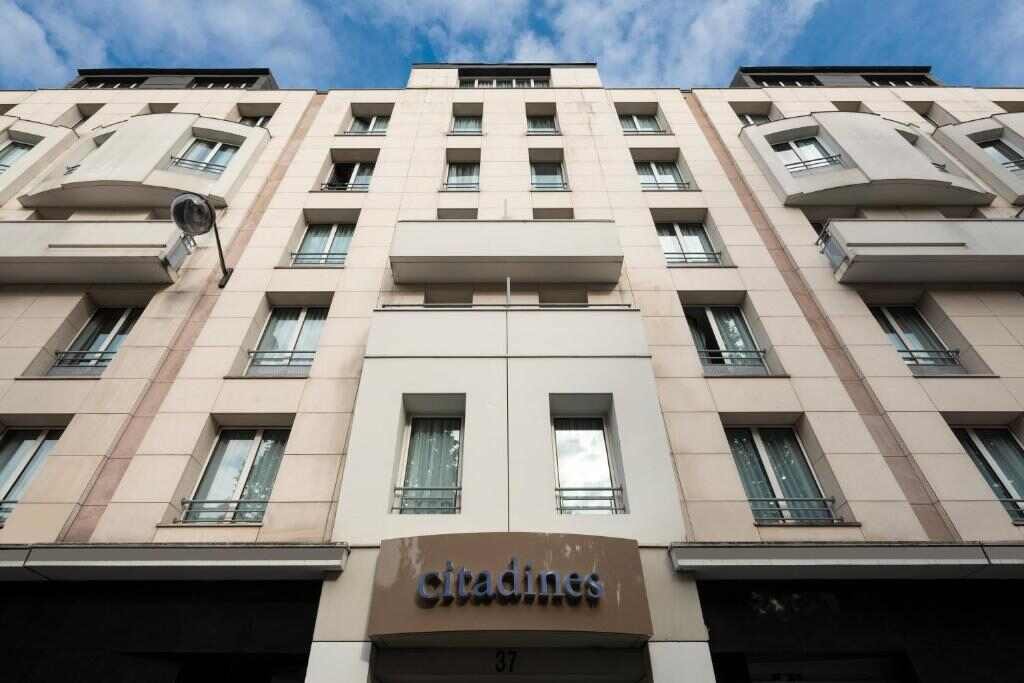Property Terms in Indonesia that You Need to Know

Indonesia Property Terms You Need to Know
Many foreign buyers find it difficult to understand how to buy property in Bali or in Indonesia in general because the procedure is different as well as some terminologies, it does not help. It’s important to understand Indonesia property terms. Ciel Realty are here to help so you don’t get stressed out about such things, but a little extra knowledge never hurt anyone and we always advise our buyers to have a clear understanding before make a purchase.
Understand that there is a very long list of terms related to this topic and here we will only cover the most frequently requested terms:
Titles
- Hak Milik: Freehold
- Hak Sewa: Right of Lease of Building
- Hak Guna Bangunan: Right to Build
Status
- Freehold
- Leasehold
- Montly/Yearly Rental
Legal
- Notary
- Land Zoning
- Badan Pertanahan Nasional (BPN): Indonesian National Land Office
- Banjar (especially in Bali)
Permits
- IMB (Izin Mendirikan Bangunan) and PGB (Persetujuan Bangunan Gedung): mandatory permit for anyone who wants to build a new building, change/renovate a building, or maintain a building.
- Pondok Wisata: Guesthouse or Homestay License
- PT PMA: Incorporation of a foreign investment limited liability company in Indonesia
Taxes
- PBB (Pajak Bumi and Bangunan): Land and Building Tax
- NJOP (Nilai Jual Objek Pajak): Tax Object Sale Value
- BPHTB (Bea Perolehan Hak atas Tanah dan Bangunan): Land and Building Title Transfer Fee
What is a leasehold property? What is the difference between leasehold property and freehold property?
Houses for sale in Bali or Indonesia in general are usually advertised using terms widely used in Commonwealth countries, although the meaning may not be exactly the same as Indonesian property law is different. Here are some of the terms used in the marketing of real estate in Bali:
1. Freehold
Properties for sale whose permanent ownership (i.e. Hak Milik title) will be transferred from the seller to the buyer. The law states that freehold properties can only be held in the name of Indonesian citizens and foreigners often use a nominee to circumvent this rule, but this is illegal and we do not recommend this option. The safest legal approach to owning property in Indonesia as a foreigner is to acquire it with a PT PMA, which we will discuss later. This is important to understand Indonesia property term for a freehold!
2. Hak sewa = Right of Lease of Building
Properties for long-term rental where the buyer pays upfront for the entire rental period. Essentially, the buyer enters into an agreement with the seller to use the seller’s property until the end of the agreement, but the ownership of said property does not change. This is a very desirable option as foreigners have the legal right (i.e. the Hak Sewa) to temporarily own property directly in their name without having to resort to a nominee or company. The agreement is registered by a notary in the form of a rental contract which serves as legal proof.
3. Monthly/Yearly Rental
Properties for rent on a monthly/annual basis where the buyer and seller enter into an agreement, but this is different from a rental agreement as there are limitations. In general, the buyer will not be able to alter the structure and/or sublet the property, and the agreement itself may not be notarized.
Can a foreigner buy property in Indonesia? Can foreigners own land in Bali or in Indonesia in general?
Foreigners can buy and own leasehold properties in Indonesia in their name with a Hak Sewa or Hak Pakai title. Proof of ownership for properties bearing the titles Hak Milik, Hak Guna Bangunan and Hak Pakai takes the form of a certificate which is registered at the Bureau of Lands (BPN), while for the Hak Sewa it is a lease contract drawn up and registered by a notary approved by the government.
1. Hak Milik (freehold)
Free title deed, which confers permanent ownership of a property. The Hak Milik is registered at the land office under the name of the owner, and every transfer of ownership and conversion of title is recorded in the certificate itself as well as at the land office. Only Indonesian citizens are allowed to hold this title.
Hak Sewa: Leasehold title, which grants the right to occupy someone else’s property (land or villa) for a fixed term. Foreigners can legally own a property with this title for up to 30 years and can extend it for another 20 years, but in practice it is the agreement between buyer and seller that determines the length of the lease. This agreement will also determine whether the buyer can modify, renovate and sublet the building.
2. Hak Guna Bangunan (HGB) = Right to Build
Title reserved for commercial purposes, converted from Hak Milik and whose ownership is transferred to a company owned by Indonesians or foreigners. Using this title is the safest approach to owning property for foreigners and provides the opportunity to acquire freehold properties. An HGB is valid for 30 years and can be extended for another 20 years. It can become a Hak Milik again if ownership is transferred to an Indonesian citizen or certain legal entities such as public banks or religious bodies.
3. Hak Pakai = Right of Use
Similar to Hak Sewa, but involves converting Hak Milik to Hak Pakai at the land office, which costs more time and money. Hak Pakai is used less than Hak Sewa due to other factors, including the fact that Hak Pakai properties can only be used as a private residence.
Foreigners can obtain condominium titles for apartments/condominium units, but it is rare to find properties with such titles in Bali, as there are relatively few apartment buildings compared to villas.
What is the land zoning law? What is a Banjar in Bali?
Governance in Bali is unique in many ways, but the process of buying and selling real estate is nevertheless largely the same as in the rest of Indonesia, which involves the involvement of a notary. One particular aspect is the Banjar, which is a small board of directors with jurisdiction over a particular district.
1. Notary
In Indonesia, the term “notary” can refer to a single person who performs two official functions. One is a notary public authorized to issue notarial deeds such as lease agreements, and the other is a land official known as Pejabat Pembuat Akta Tanah (PPAT) authorized to manage the land registry. The two professions are distinct from each other, but the term “notary” is often used interchangeably as most notaries public also act as PPATs and vice versa.
2. Badan Pertanahan Nasional (BPN) = Indonesian National Land Office
National land office responsible for issuing land certificates in Indonesia. The BPN maintains a record of all transfers of ownership and title conversions of a property, and the notary performs due diligence checks with them.
3. Land zoning
Land in Bali and Indonesia is governed by zoning law which limits the use of land based on the area in which it is located. The areas you usually encounter are Pemukiman (residential area), Pariwisata (tourist area) and Pertanian (agricultural/green area), with each area having its own boundaries.
4. Banjar
Unique community governing body in Bali (Indonesia property term), responsible for the administration and governance of a given neighborhood. Each Banjar has its own customs and arrangements, but non-native residents are generally required to pay a contribution on a monthly/annual basis.
Banjar means ‘neighborhood’.
The smallest form of local government in Bali is the Banjar. It is basically a local community group who acts as a village government system and village council. It is independent from the police and takes care about the cultural and religious values of the village community.
If this is your first time buying properties for sale in Bali and/or if you are unfamiliar with how real estate transactions work here, we strongly recommend that you buy through a licensed real estate agent in Bali for a smooth and secure process.
What is IMB or PBG? What is a PT PMA?
Having the necessary permits and licenses is crucial to the security of your investment, especially if you are running a business such as Bali villa rentals. As stated earlier, each land area has its boundaries and this is what determines whether or not a property is eligible for certain permits.
1. Izin Membangun Bangunan (IMB) & Persetujuan Bangunan Gedung (PBG)
Both refer to the building permit of a property which must be obtained before construction is completed. It is not possible to obtain a building permit for properties located in a Pertanian zone. Although IMB has not been used since it was replaced by PBG in 2021, the term is still used frequently to this day.
2. Pondok Wisata
Homestay license required to operate a house or villa as a daily rental. It can only be issued to properties located in a Pariwisata area and to Indonesian citizens or companies, including PT LDCs, but foreign persons can acquire properties already registered with this license.
3. Perseroan Terbatas Penanaman Modal Asing (PT PMA) = Incorporation of a foreign investment limited liability company in Indonesia
A foreign investment company legally established and registered in Indonesia, which may be partially or fully foreign-owned depending on the classification of the company. Establishing a PT PMA requires significant capital, but it is the safest approach to owning property for foreigners and it offers the possibility of acquiring freehold properties with an HGB title.
What type of legal entity do I need? A company (PT PMA) or a representative office (KPPA)?
Do you plan to generate revenues, profit or engage in sales directly in Indonesia, then you need a PT PMA. Do you want to explore business opportunities in Indonesia for your foreign company (through market research, networking, etc.) without engaging in commercial transactions, then it is better to establish a representative office (if such research shows positive results then you can decide to establish a PT PMA later on). (in Indonesian: Kantor Perwakilan Perusahaan Asing, abbreviated KPPA).
Is the sector I want to invest in open to foreign investment? If yes, what is the percentage of ownership allowed to foreign investors?
To answer that, please take a closer look at the Negative Investment List (latest revision done through Presidential Regulation No. 44/2016). If the sector requires partial domestic ownership, then you need a local partner. If you do not have a suitable local partner, we can try to find one for you (contact us here for further information).
Disclaimer: The content of this publication is provided for general information only and does not constitute legal, financial, tax or other professional advice from Bali Home Immo. Some of the information provided in this publication is obtained from a third party source and we do not guarantee that the content of this publication is accurate, complete or up to date. Past performance is not indicative of future performance and should not be used as the basis for any investment decision.
Photo credit: QuinceCreative via Pixabay





